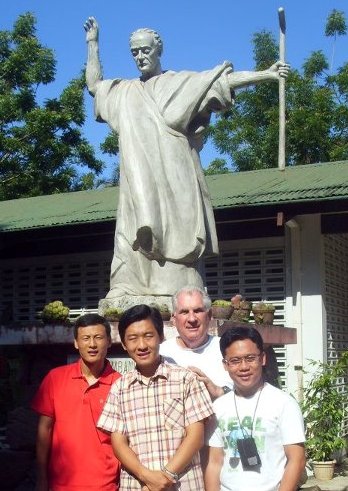Misyon Online - May-June 2012
Pulong ng Editor
COMMENTS
See more Misyon Videos
The First Chinese Columban Seminarians
|
|
|---|---|
Life-giving ConnectionsBy John Wang Zongshe When I was baptized my godfather chose the name John in honor of St John the Baptist. I was born into a traditional Catholic family and brought up in Hebei Province, four hours by train southwest of Beijing. Our village was one-third Catholic. |
A Church with Room for AllBy Joseph Li Jiangang
|
A contrast in educational facilitiesIn June the new academic year will start here in the Philippines. The Department of Education will also begin to implement the new ‘K to 12’ curriculum, will extend basic primary-secondary program by two years. In the Philippines education is seen as a vital key to improving one’s lot and that of one’s family in life. Parents will make great sacrifices, even to the extent of working for years overseas away from their families, so that their children will get a good education. |
|
City stops for exam dayBy Fr Noel O’Neill
South Koreans pride themselves on a competitive spirit. This has contributed to the vast number of Koreans attending elite American universities ... |
Remote EducationBy Fr Eamon Sheridan From 1936 until 1979 Columban missionaries ministered in the Diocese of Myitkyina, Myanmar. During those years they worked hard to develop and strengthen the local Myanmar church but they were forced to leave in 1979.
Since leaving the country, the Columbans have tried to continue to support the Diocese. The Columbans always placed great emphasis on education and during one period, they opened 47 primary schools, six middle schools and four high schools. |
Come, Risk the Sacred JourneyBy Sr Alicia Alambra FMM Come risk the sacred journey, enter now uncharted place. Driving around is like taking the given daily choices of everyday life and choosing the right direction so as to arrive at our destination. What is important are the four directions of North, South, East and West, so I always figure out these directions in order to find my way easily. |
|
 |
|
|
|
 |
|
|
‘I often wondered why Brother So-and-so never took to the priesthood despite his academic degrees. But then each man to his chosen profession.’ This statement, in a column in a daily newspaper in which the writer was paying tribute to a recently deceased friend who was a De La Salle religious brother |
|
Pulong ng Editor
A Church With Room For All
By Joseph Li Jiangang
 My village of 800 residents is one hundred percent Catholic. It is in Shaanxi Province, 16 hours by train southwest of Beijing. My Christian name was chosen by our parish priest when he baptized me. As a young boy I always went to church with my grandmother even though I did not really like to. I preferred to be playing with my friends. On one occasion, during my primary school years, I went to see an open-air movie at Mass time.
My village of 800 residents is one hundred percent Catholic. It is in Shaanxi Province, 16 hours by train southwest of Beijing. My Christian name was chosen by our parish priest when he baptized me. As a young boy I always went to church with my grandmother even though I did not really like to. I preferred to be playing with my friends. On one occasion, during my primary school years, I went to see an open-air movie at Mass time.
The Franciscan Missionaries of Mary worked in our village and ran a medical clinic. In junior high school, one Sister got us together for religious education during our summer holidays, and at the age of eleven I began to know more about God. I was born after the Cultural Revolution (1966-1976) so much religious practice had ceased. I used to sit at the back of the church when I went alone, but when I joined the youth group we would sit at the front. As a youth I went of my own free will to church.
At that time, I was timid and afraid to read in public. I became an altar server and at twelve I was leading the congregation in half an hour of prayers before Mass. I liked that and on returning from school I’d drop my bag and head for the church.
When I was sixteen my father’s cousin, who is a priest, wanted me to go to the minor seminary. So I went, but not because I wanted to. My father had the idea that since he had two sons, offering one to God was a good thing. I was only there for two months when the government shut the seminary as it was run by the underground part of the Church. I returned home, and my father told me to just wait and see what might happen. In the meantime, I enrolled at the local junior high school.
After middle school I got a job, as my family was poor. I worked for one year and then returned to the minor seminary, which had reopened. I felt that the community atmosphere of the seminary helped draw me closer to God. During this time I lived with a Catholic family from Monday to Friday and on weekends returned to the seminary. Since the family I stayed with knew the principal of the local high school, which wasn’t in the residential zone of my family, I was able to study there, paying lower fees.
At the age of 23, in 2005, I began to think about being a missionary. I used to help out in the Church during summer with catechetical programs for children. That was when I realized that many people in other villages were not Catholic, and I remembered that Jesus had said that the Gospel is for everyone. I noticed that some of the youth who said they had no faith also talked about being lonely and having feelings of emptiness in their lives. By this time I was 24 and was already in the seminary.
I left the local seminary but began to rediscover my vocation and a diocesan priest who had studied in Ireland for four years on a Columban scholarship connected me with Australian Columban Fr Kevin O’Neill. I found a job after leaving the seminary and was living in Xi’an where I became involved with the local Church and youth group.
When I try to answer the question ‘Why be a missionary?’ I do my best to answer out of my experience in China. Three points occur to me. First, I grew up Catholic and want to share my faith both in China and overseas. Second, it is good that the Church offers opportunities to help youth come together and share their search for meaning in life. My experience in China prompts me to think that possibly youth in other parts of the world are also searching for meaning in their lives. Third, there should be space in the life of the Church for all, not just Christians; there should be a welcome for all. Here in China I have learned the importance of dealing with people who are not Christians. We need to reach out to them too, and also to those in other parts of the world who struggle to find meaning for their lives and have had little chance to hear the Christian message.
A Contrast In Educational Facilities
In June the new academic year will start here in the Philippines. The Department of Education will also begin to implement the new ‘K to 12’ curriculum, will extend basic primary-secondary program by two years. In the Philippines education is seen as a vital key to improving one’s lot and that of one’s family in life. Parents will make great sacrifices, even to the extent of working for years overseas away from their families, so that their children will get a good education.
People in other countries too see a good education as vital but opportunities and facilities can vary greatly. This issue carries two articles on education in countries where the Columban connection goes back to the 1930s. One, Remote Education, is about the Kachin State in northern Myanmar (Burma) where poverty and the lack of facilities are huge realities. The other, City stops for exam day, is set in the Republic of Korea where education is available for all – up to the end of second level. But an examination taken on one day determines who can go to university and who can’t. Only half of the more than 500,000 or so taking the exam will succeed.
Come, Risk The Sacred Journey
By Sr Alicia Alambra FMM
Come risk the sacred journey, enter now uncharted place.
Risk the sacred journey inward to the ocean deep and dark.
Step by step we make our way through
Desert plains and mountains steep.
Step by step God’s Spirit leads us . . .
Driving around is like taking the given daily choices of everyday life and choosing the right direction so as to arrive at our destination. What is important are the four directions of North, South, East and West, so I always figure out these directions in order to find my way easily.

One day I drove on my own to the airport to learn how to easily bring Sisters there for their flights. I had driven once already with a ‘back seat driver’ as guide. This time I drove alone and found myself on the eastbound of the westbound. I pulled over to the shoulder of the road and looked once more at the signs. I had made a mistake. I couldn’t make a U-turn as the road was one-way. So I took the risk of going on ahead and turning another way but was sure I would be lost. I found I was on a highway. The only way to get to my destination or go home safely was to call for a rescue unit or to get on a side-road and come out of the small roads and figure out my route with maps and use the GPS (Global Positioning System).
That experience was a shock for me and propelled me to use imaginations to find my way. After that sad event, it made me more of a risk taker because in the end I found the right technique. Guided by maps, good imagination of direction, with the GPS as companion, and humbly asking several people, God showed me the way.
Another time I used the GPS but wasn’t yet familiar with its capabilities. So I started doubting, and believed more in my own ability. It takes patience and trust, how to use the GPS, because there are plenty of roads and here you are figuring out which of the roads the GPS will tell you to track, because you are driving fast. Better take a companion to help you if the way is so ambiguous.
 The GPS is a space-based satellite navigation system that provides location and time information in all kinds of weather, everywhere. It is maintained by the United States government and is freely accessible by anyone with a GPS receiver. The GPS program provides critical capabilities to military, civil and commercial users around the world. In addition, the GPS is the backbone of the modernization of global road and air traffic systems
The GPS is a space-based satellite navigation system that provides location and time information in all kinds of weather, everywhere. It is maintained by the United States government and is freely accessible by anyone with a GPS receiver. The GPS program provides critical capabilities to military, civil and commercial users around the world. In addition, the GPS is the backbone of the modernization of global road and air traffic systems
This is the machine we are using to help when traveling because there are many winding roads and highways where drivers can be understandably confounded and lost. It can be heartbreaking to drive to unfamiliar places, as I have found, having lived and traveled in the states of New York, Rhode Island, Connecticut, New Jersey, California, Indiana, Illinois, Nevada and in Washington DC. We can also try alternative routes and the GPS will recalculate your journey, as it will do if you take a wrong road by mistake. An incredible road companion!
In life, we need good friends and spiritual directors, good books and the Word of God, the Bible, to lead us. Sometimes, we encounter doubts, but then God sends rescuers. Here is reflection of a friend finding her way in life, where all may be new - place, culture, people, climate . . .
Leaving everyone you know, moving to another country, and having to start everything from scratch again requires a lot of effort. Even though I have travelled quite a bit, it is still challenging. The change of climate contributes to the whole adventure. In the winter, everything requires more time – I never needed to scrape a thin layer of ice from a car windshield before. There were many times I had no idea what I was doing here and why I was putting myself through all this.
My confidence as a person continues to grow, as I tackle challenges one by one. I‘ve learned to be more authentic. Its diversity is what makes the world an interesting and beautiful place to live in.
I am grateful for the warm friends who remind me to ‘keep breathing’ and to just take it one day at a time. I’m glad that I have kept on going and learned to befriend the changes, instead of trying to control them, allowing the changes to happen and unfold, and allowing them to mature in their own time. I will eventually see why the changes have been necessary for and what blessings are in store. I realize that once I am able to see beyond my worries, I am able to see the beauty that surrounds me.

God has shown us to understand
that there is more growth and more blessings
disguised in the various forms of adventures that are unfolding on our way,
beyond our fears, worries, annoyances and discomforts.
Life-Giving Connections
By John Wang Zongshe
 When I was baptized my godfather chose the name John in honor of St John the Baptist. I was born into a traditional Catholic family and brought up in Hebei Province, four hours by train southwest of Beijing. Our village was one-third Catholic. When I was young there was no television in our home so I asked my father to tell me Bible stories and that is where my faith journey began. As a primary school student, each Saturday I would play with my friends in our village but also made time for one hour’s adoration before the Blessed Sacrament in the local church. It was the custom in our village to have exposition of the Blessed Sacrament on Saturday afternoon and the Catholics would spend some time in prayer in the church. I feel that my personal relationship with God has its origin in those hours before the Blessed Sacrament.
When I was baptized my godfather chose the name John in honor of St John the Baptist. I was born into a traditional Catholic family and brought up in Hebei Province, four hours by train southwest of Beijing. Our village was one-third Catholic. When I was young there was no television in our home so I asked my father to tell me Bible stories and that is where my faith journey began. As a primary school student, each Saturday I would play with my friends in our village but also made time for one hour’s adoration before the Blessed Sacrament in the local church. It was the custom in our village to have exposition of the Blessed Sacrament on Saturday afternoon and the Catholics would spend some time in prayer in the church. I feel that my personal relationship with God has its origin in those hours before the Blessed Sacrament.

Hebei Province
On completing high school my father advised me to get into business and make money so, aged 20, I took a train to Dong Ning, a town in Heilongjiang Province two days by train north of Beijing, not far from the Russian border. There I met a Catholic family who inspired me by the way they lived their faith. The couple were leaders and evangelizers in the local community where there was no resident priest. The family offered bed and board to about 20 rural children who wanted to attend primary school. Their example prompted me to rethink the direction of my life.
There I first met Columban Fr Gerry Neylon when he went up to check on the possibility of the Columbans supporting the community in some way. Father Gerry, who works in China, arrived accompanied by Maria Zhang Yaru, the daughter of the couple I came to know. In 1994 she received a Columban scholarship that was supervised by Fr Michael ‘Mickey’ Martin, an Irish Columban, then parish priest of Malate, Manila, to study in the Philippines. At the time she was unable to use the scholarship, but was able to go later through an invitation from a Chinese priest in the Philippines and she stayed there for eight years. She completed a master’s degree in education and did volunteer work in Malate parish where she met Fr Mickey. While in Manila she made friends with the other young Chinese women who were there on the Columban scholarship program. There she also met Fr Warren Kinne, an Australian Columban who had worked before in Mindanao, who was Central Lay Missionary Coordinator for the Columbans at that time, and would later be working in China himself when Maria returned home. On returning to China, thanks to her multiple Columban contacts, she soon met Father Gerry and took him to Dong Ning.
I shared with Maria my interest in working in evangelization and she urged me to go to the Philippines to study as preparation for being a catechist. I took her advice and studied religious education and philosophy in Manila, where I also worked as a volunteer in Malate parish and met Fr Mickey Martin. I returned to China to work with Maria in evangelisation and soon after Fr Kevin O’Neill, who had received my contact details from Father Mickey, came to see me. The rest is history. I completed a one-year English study program in Wuhan during which I took a look at the Columbans and they took a look at me. If both of us like what we saw, I would go to begin the Columban formation program in the Philippines.
At this point I would like to say something about four objections to being a missionary.
First, some might think that by becoming a missionary one cannot live out one’s deepest desire, which might be to become a teacher, a doctor, a lawyer, or something else. However, I don’t think this is true as in my case my dream was to be a doctor, but clearly I have not followed that path in life. However, as a missionary I can take care of people and so still fulfill the basic desire of my dream.
Second, some say that by becoming a missionary one gives up one’s freedom. However, that is not so as real freedom is to seek the truth. In fact, by being a missionary I experience even greater freedom to do precisely that, because a missionary is primarily a seeker and a communicator of truth discovered through the exercise of reason inspired by faith.
Third, when I was working I strove for money, power and material goods, but discovered that such things are limited and hollow. It is easy to lose oneself searching for such things. My purpose in life is to discover myself, a truth that came to me when I was about 24 years of age and which I continue to work at. Now that I’m on the path towards being a missionary I’m discovering inner peace and harmony and who I am as a person. For me, to be a missionary is to search for God and the eternal, a quest that never ceased to engage me even during my pursuit of material success.
Fourth, some might say the life of a missionary is very lonely. However, missionaries belong to a community that is like a family. We also have our family and relatives, friends, hobbies and interests. God is with us, so how could we possibly be lonely? In today’s world youth don’t have the chance to be alone and quiet. There is little chance to quieten our spirit in order to discern what is most important in life for us.
Peace By Peace

|
|
|
The love of God comes to us through all creatures but hidden as it is in the Blessed Sacrament… The most holy of lives is a mysterious thing because of its very simplicity and apparently humble state. What a festival and never-ending feast is ours! God ceaselessly gives himself and is received with no pomp and circumstance, but hidden beneath all that is weak and foolish and worthless. He chooses what our natural feelings despise and what our human prudence rejects. From these castoffs he creates miracles of love and gives himself to us as often as we believe we have found him there. Jean-Pierre de Caussade SJ (1675 – 1751), Abandonment to Divine Providence
If our culture can be described as our ‘window on the world,’ then we need to accept that there are endless windows on the world. Other societies have their windows on the world. There are endless ways of perceiving reality and responding to it – all of which have their own validity.
Fr Leonard, a Columban, spent most of his life as a priest in the Philippines and was a pioneer in the formation of lay leaders in Mindanao. He is buried in Ozamiz City.
In a dialogue of life, there is no superiority or inferiority, either in religion or culture. Everyone is on equal footing. There must be a basic respect for the other person. There is no conversion or any attempt under any guise to convert or weaken the faith of the other person – only to convert people to God. We come as ‘learners’ and also as ‘servants’ of the community. ~ Bishop Bienvenido S. Tudtud (1931- 1987) ~ Bishop ‘Benny’ Tudtud, born in Mabolo, Cebu City, was the first Bishop of the then Prelature of Iligan and the first Bishop of the Prelature of Marawi. A great friend of the Columbans, he died in a plane crash on a flight from Manila to Baguio on 26 June 1987.
~ St Thérèse of Lisieux (1873 – 1897 )~
In the world as it is, torn with agonies and dissensions, we need some direction for our souls which is never away from us; which, without enslaving us or narrowing our vision, enters into every detail of our life. Everyone longs for some such inward rule, a universal rule as big as the immeasurable law of love, yet as little as the narrowness of our daily routine. It must be so truly part of us all that it makes us all one, and yet to each one the secret of his own life with God.
|
|
Remote Education
By Fr Eamon Sheridan
 From 1936 until 1979 Columban missionaries ministered in the Diocese of Myitkyina, Myanmar. During those years they worked hard to develop and strengthen the local Myanmar church but they were forced to leave in 1979.
From 1936 until 1979 Columban missionaries ministered in the Diocese of Myitkyina, Myanmar. During those years they worked hard to develop and strengthen the local Myanmar church but they were forced to leave in 1979.
Since leaving the country, the Columbans have tried to continue to support the Diocese. The Columbans always placed great emphasis on education and during one period, they opened 47 primary schools, six middle schools and four high schools.
One important part of the educational legacy that the Columbans left behind was a series of ‘Boarding Houses’. These Boarding Houses were developed as a concrete response to the situation of children in remote areas. Due to the large distances involved, children in these areas had no way of getting to school.
The Boarding Houses offered these children food and lodging and the opportunity of attending a school in the neighborhood. The families of the children helped maintain the Boarding Houses through offerings of rice and vegetables.
In 1965 the Burmese Government nationalized all Catholic Schools. The Boarding Houses were maintained however as a part of the mission of the local diocese.
With the departure of the Columban missionaries, responsibility for the Boarding Houses passed to the Myitkyina diocese, which over time found it very difficult to find the resources to maintain the Boarding Houses.
The diocese has the responsibility for employing staff who live with and supervise the students in the Boarding Houses. These people also offer extra tuition to the students in the evenings, especially for those preparing for the final high school examination.
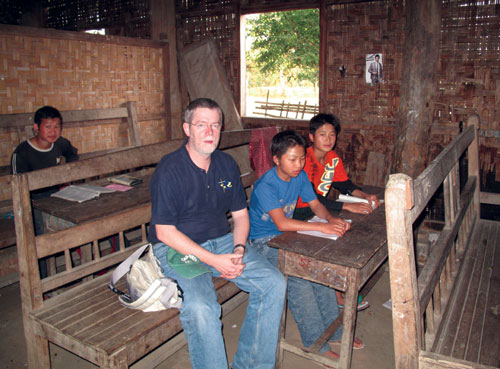
In 2007 I made my first visit to Myitkyina and I was immediately struck by the run down nature of the Boarding Houses. The ones I visited were in an appalling state with the children living in terrible conditions. Many of them were only getting one meal a day. The boarding staff were often only a little older than the children themselves and could offer them very little help with tuition.
At the same time, these Boarding Houses continued to play an important role in giving a place for poor students from remote areas a place to stay so they could attend school.
After a conversation with fellow Columban Fr Eamonn O’Brien, who acts as a consultant to the Diocese of Myitkyina, three things struck me as necessary if we are to make a real difference in the lives of these children.
Firstly, we needed to renovate the buildings of the Boarding Houses which had greatly deteriorated over time. Secondly, we needed to employ boarding staff who were more qualified and could offer better tuition to the children. Thirdly, it was necessary in some Boarding Houses to supplement the diet with meat.
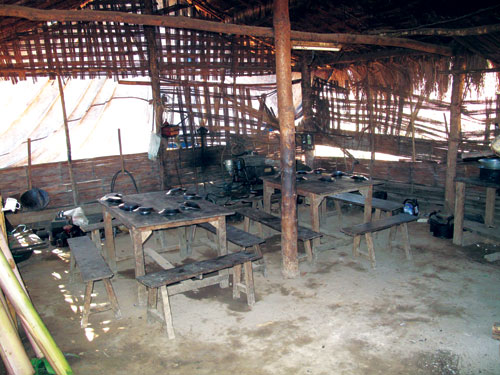
In consultation with the local bishops, priests, lay people and Fr O’Brien, we developed a ‘Remote Education Plan’ to accommodate these three aims.
We implemented this ‘Remote Education Plan’ over the last three years and we have seen a great improvement in the renovation of the Boarding Houses. Many of the previous Boarding staff have now received professional training while new ones with better qualifications have also been hired. In the places where the food supplement was needed, there has been a dramatic fall in illness among the students.
These improvements have only been possible thanks to the support of Columban benefactors.
As the civil war continues, some of the Boarding Houses have been closed. However, better quality education remains the key for these children to have a brighter future. It's a joy to see the thirst for learning that these young people have. In a small way we are offering them an opportunity that they would not otherwise have.
We thank our benefactors for their continued support.
Fr Eamon Sheridan, from Ireland, is currently on the Columban General Council in Hong Kong. You may find him on Facebook.
The First Chinese Columban Seminarians
Last June John Wang Zongshe and Joseph Li Jiangang came to Manila as the first candidates from the People’s Republic of China to join the Columbans. The Columbans were originally known in Ireland as the Maynooth Mission to China when the Irish bishops gave their approval on 10 October 1916 to a new mission of the Irish Church to China. The Society of St Columban was formally approved on 29 June 1918, the feast of Sts Peter and Paul.
John and Joseph have just finished a year of English studies in Manila and in June start their Spiritual Formation year in Cubao, QC, with four Filipinos, Elbert Balbastro, from Oton, Iloilo, Crisanto Ecaldre from Puerto Princesa, Palawan, Ericson Helasque from Agusan, Cagayan de Oro City and Jerry Lohera from Magsaysay, Misamis Oriental.
Two more students from China will also arrive in June, Peter Dong Lichun and Augustine Wang Pengyu. They will study English during their first year here.
L to R: Joseph, John, Fr Gore and EmmanuelJohn and Joseph were on an exposure program in the Diocese of Kabankalan under the guidance of Fr Brian Gore for three weeks over the Holy Week – Easter period and spent a couple of days at the Misyon editorial office in Bacolod City before returning to Manila. Emmanuel B. Trocino, a Columban seminarian from Pulupandan, Negros Occidental, was with them.
John and Joseph tell their vocation stories here.
To Search is To Find

‘I often wondered why Brother So-and-so never took to the priesthood despite his academic degrees. But then each man to his chosen profession.’ This statement, in a column in a daily newspaper in which the writer was paying tribute to a recently deceased friend who was a De La Salle religious brother ![]() , is a variation of a question your editor has been asked or has heard many times over the years. Below is an expanded version of a letter in response published by the newspaper.
, is a variation of a question your editor has been asked or has heard many times over the years. Below is an expanded version of a letter in response published by the newspaper.
Brother So-and-so’s chosen profession was education. Being a religious brother is not a profession but a call from God, a vocation. The vocation of the religious brother is exactly like that of the religious sister. It is a call to live in community with vows of poverty, chastity and obedience in order to serve the wider community in accordance with the congregation’s specific mission. In the case of the De La Salle brothers ![]() that is education. Theologically, religious brothers and sisters are laypeople.
that is education. Theologically, religious brothers and sisters are laypeople.
I was educated in Dublin for ten years by the Irish Christian Brothers, an international community now known as the Congregation of Christian Brothers or the Edmund Rice Christian Brothers whose current head, Bro. Philip Pinto, is Indian. They have a community in the Diocese of Kabankalan. I have the deepest respect for the brothers who taught me. Later in my life two Marist Brothers became friends. The Marist Brothers are also a teaching congregation. Br Luke Pearson FMS, an American, and I studied together in Toronto in 1981-82. Some years later he came to the Philippines to be part of the staff at the Marist Asia-Pacific Center (MAPAC) in Marikina City and taught at the Institute of Formation and Religious Studies (IFRS) in New Manila, Quezon City. Br Columbanus Pratt FMS, an Australian, was also a member of the staff in MAPAC for some years. When younger, he spent many years teaching in what is now Notre Dame of Marbel University. Both have now gone to their reward.
There are orders and congregations of religious brothers whose work is caring for the sick, eg, the Alexian Brothers, the St John of God Brothers. The latter call some members to be priests in order to serve the Order and the sick. Many orders and congregations have both priests and brothers, eg, the Jesuits, the Redemptorists, the SVDs.
The various orders of friars have both priests and brothers. The word ‘friar’ comes from the Latin ‘frater’, which means ‘brother’. The Spanish term is ‘fray’, plural ‘frailes’, words that are familiar to Filipinos. In The 2011 Catholic Directory of the Philippines the Capuchin Franciscans (OFMCap) use only the title ‘Brother’, which may be abbreviated as ‘Br’ or ‘Bro’, for all their members, including priests.
The religious brother is not called by God to be a priest any more than the religious sister is, The educational attainments of a particular brother have no bearing on the priesthood. What matters is God’s call to be a brother.
The noble vocation of the religious brother is widely misunderstood. Confusion is added to this by diocesan seminarians, who are not religious, using the term ‘Brother’ for themselves. If my memory serves me correctly, the religious brothers at the Second Plenary Council of the Philippines asked that the title “Brother” be used only by religious brothers, in order to avoid such confusion about their vocation.
The current Secretary of Education of the Philippines is Br Armin A. Luistro FSC. He was co-founder of Unika De La Salle Manado, De La Salle University, Manado, Indonesia.
Some Religious Brothers in the Philippines on the Internet
- Alexian Brothers (CFA)
- Edmund Rice Christian Brothers (CFC)
- Brothers of Charity (FC)
- La Mennais Brothers (FIC)
- Marist Brothers of the Schools (FMS)
- Sons of Mary, Health of the Sick (FMSI)
- De La Salle Brothers (FSC)
- Brothers of the Holy Family (FSF)
- Montfort Brothers of St Gabriel (MBSG)
- Missionaries of Charity Brothers (MC)
- Hospitaller Order of the Brothers of St John of God (OH)
- Brothers of the Sacred Heart (SC)
‘We Had To Let Her Go’
Our cover photo features Estefanio Argall Luceño and his wife of 60 years, Teresita. It was taken in Dahilayan, Bukidnon, last year where the couple were visiting from their home in Pagadian City, Zamboanga del Sur. Estefanio died on Holy Saturday this year, 7 April, and buried a week later on Easter Saturday.
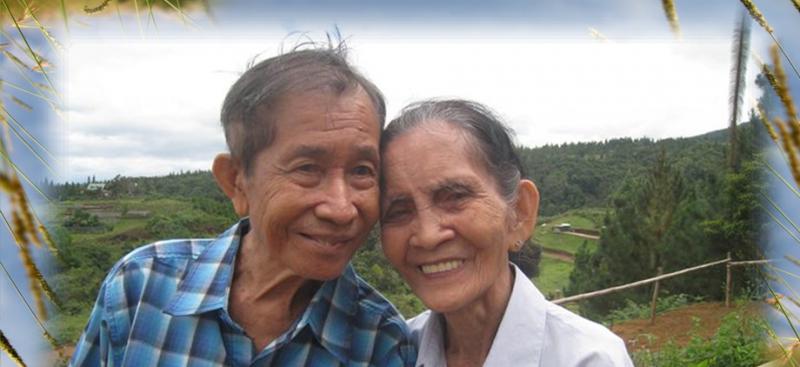
Mr and Mrs Luceño’s daughter Aurora, known to her friends as ‘Auring’ or ‘Au’, joined the Columban Lay Missionary Program (CLMP), now known as ‘Columban Lay Missionaries’ (CLM), in 1993. Currently based in the Philippines, Auring has spent many years in Pakistan.
In the January-February 2004 issue of Misyon we published an article by Mr Luceño about his daughter becoming a Columban Lay Missionary, We had to let her go. We republished it recently in Misyon Online Forum.
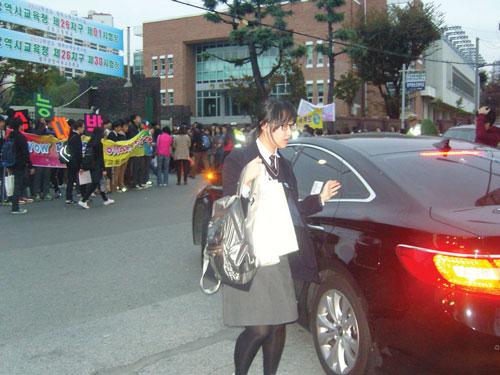
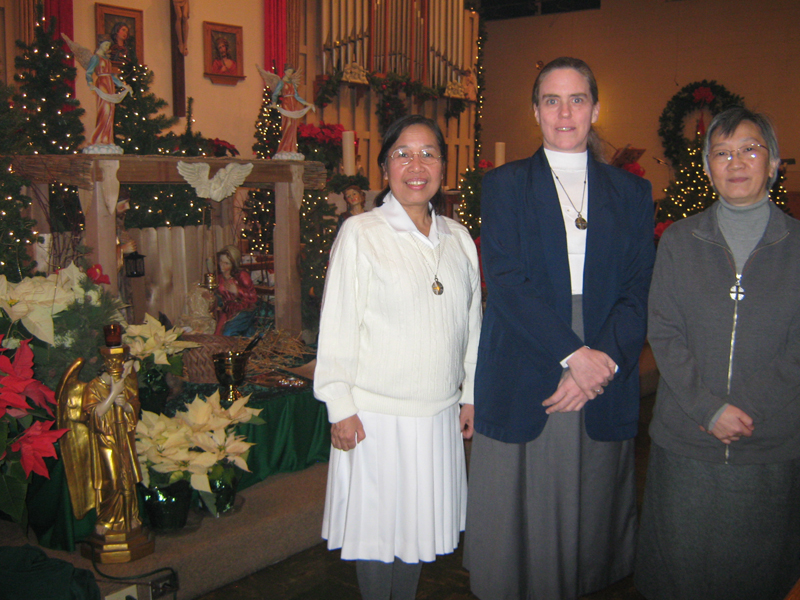
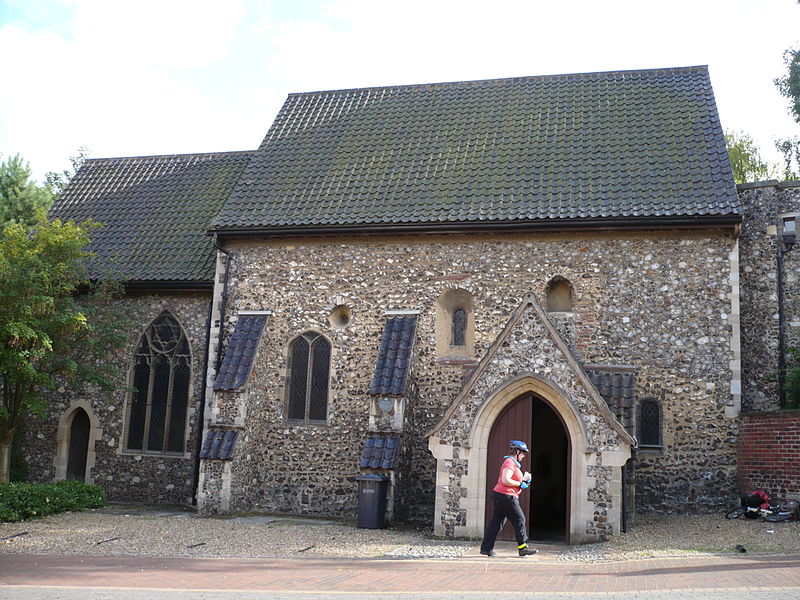

 Where does true education in peace and justice take place? First of all, in the family, since parents are the first educators. The family is the primary cell of society; “it is in the family that children learn the human and Christian values which enable them to have a constructive and peaceful coexistence. It is in the family that they learn solidarity between the generations, respect for rules, forgiveness and how to welcome others.” (1) The family is the first school in which we are trained in justice and peace. Pope Benedict XVI,
Where does true education in peace and justice take place? First of all, in the family, since parents are the first educators. The family is the primary cell of society; “it is in the family that children learn the human and Christian values which enable them to have a constructive and peaceful coexistence. It is in the family that they learn solidarity between the generations, respect for rules, forgiveness and how to welcome others.” (1) The family is the first school in which we are trained in justice and peace. Pope Benedict XVI, 
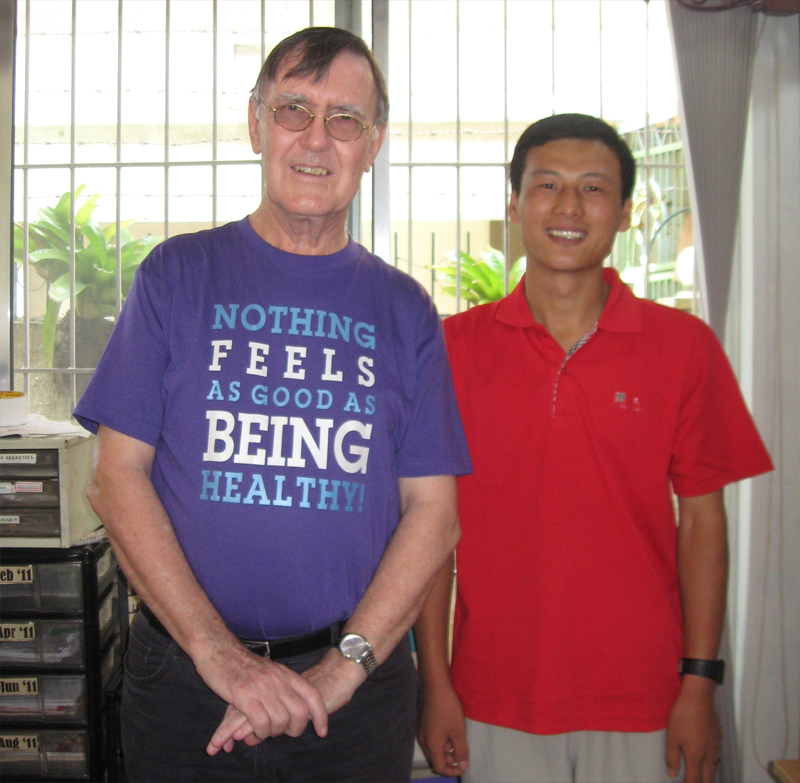
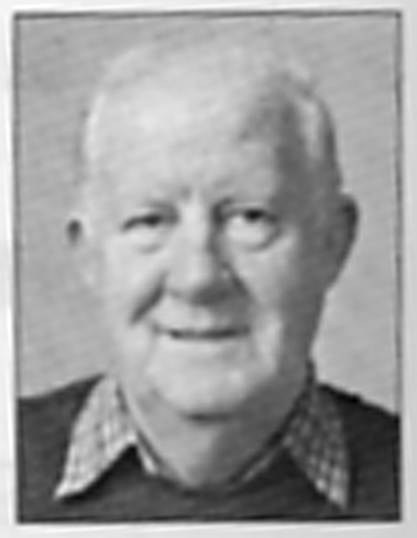
 To this need, the imitation of Our Lady is the answer; in contemplating her we find intimacy with God, the law which is the lovely yoke of the one irresistible love.
To this need, the imitation of Our Lady is the answer; in contemplating her we find intimacy with God, the law which is the lovely yoke of the one irresistible love.